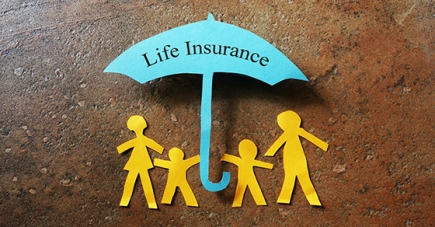A buy-sell agreement can provide the liquidity to cover estate taxes
If you own an interest in a closely held business, it’s critical to have a well-designed, properly funded buy-sell agreement. Without one, an owner’s death can have a negative effect on the surviving owners.
If one of your co-owners dies, for example, you may be forced to go into business with his or her family or other heirs. And if you die, your family’s financial security may depend on your co-owners’ ability to continue operating the business successfully.
Buy-sell agreement and estate taxes
There’s also the question of estate taxes. With the federal gift and estate tax exemption currently at $11.4 million, estate taxes affect fewer people than they once did. But estate taxes can bring about a forced sale of the business if your estate is large enough and your family lacks liquid assets to satisfy the tax liability.
A buy-sell agreement requires (or permits) the company or the remaining owners to buy the interest of an owner who dies, becomes disabled, retires or otherwise leaves the business. It also establishes a valuation mechanism for setting the price and payment terms. In the case of death, the buyout typically is funded by life insurance, which provides a source of liquid funds to purchase the deceased owner’s shares and cover any estate taxes or other expenses.
3 options
Buy-sell agreements typically are structured as one of the following agreements:
- Redemption, which permits or requires the business as a whole to repurchase an owner’s interest,
- Cross-purchase, which permits or requires the remaining owners of the company to buy the interest, typically on a pro rata basis, or
- Hybrid, which combines the two preceding structures. A hybrid agreement, for example, might require a departing owner to first make a sale offer to the company and, if it declines, sell to the remaining individual owners.
Depending on the structure of your business and other factors, the type of agreement you choose may have significant income tax implications. They’ll differ based on whether your company is a flow-through entity or a C corporation. We can help you design a buy-sell agreement that’s right for your business.
© 2019
You have options when addressing life insurance in your estate plan
Life insurance has long provided a source of liquidity to pay estate taxes and other expenses. But, with the estate tax exemption currently set at an inflation-adjusted $10 million ($11.40 million for 2019), estate taxes are no longer a concern for many families. Nonetheless, life insurance offers many benefits for nontaxable estates.
If you own life insurance policies at your death, the proceeds will be included in your taxable estate. Ownership is usually determined by several factors, including who has the right to name the beneficiaries of the proceeds. If estate taxes are a concern, the way around this problem is to not own the policies when you die. However, don’t automatically rule out your ownership, either.
4 possible owners
To choose the best owner, consider why you want the insurance. Do you want to replace income? Provide liquidity? Or transfer wealth to your heirs? And how important are tax implications, flexibility, control, and cost and ease of administration? Here are four types of owners:
1. You or your spouse. There are several nontax benefits to your ownership, primarily relating to flexibility and control. The biggest drawback is estate tax risk. Ownership by you or your spouse generally works best when your combined assets, including insurance, won’t place either of your estates into a taxable situation.
2. Your children. Ownership by your children works best when your primary goal is to pass wealth to them. On the plus side, proceeds aren’t subject to estate tax on your or your spouse’s death, and your children receive all of the proceeds tax-free. On the minus side, policy proceeds are paid to your children outright. This may not be in accordance with your estate plan objectives and may be especially problematic if a child has creditor problems.
3. Your business. Company ownership or sponsorship of insurance on your life can work well when you have cash flow concerns related to paying premiums. Company sponsorship can allow premiums to be paid in part or in whole by the business under a split-dollar arrangement. But if you’re the controlling shareholder of the company and the proceeds are payable to a beneficiary other than the business, the proceeds could be included in your estate for estate tax purposes.
4. An ILIT. A properly structured irrevocable life insurance trust (ILIT) could save you estate taxes on any insurance proceeds. The trust owns the policy and pays the premiums. When you die, the proceeds pass into the trust and aren’t included in your estate. The trust can be structured to provide benefits to your surviving spouse and/or other beneficiaries.
Questions and answers
If you’re planning to include life insurance in your estate plan but are unsure of the best way to do so, contact us. Given your circumstances, we can help you determine who should own the policy.
© 2019

Walls & Associates is a certified public accounting firm serving the needs of businesses and individuals in the tri-state area of West Virginia, Kentucky, and Ohio. We are confident that regardless of size, we can fulfill your financial and tax accounting needs – whether it is a simple individual tax return, a consolidated multi-state corporate tax return, a nonprofit tax return, or general bookkeeping.
CONTACT US
-
Milton Office Location:
Phone: 304-390-5971
1025 N. Main Street
Milton, WV 25541 -
Hamlin Office Location:
Phone: 304-824-3880
19 3rd Street
Hamlin, WV 25523
WORKING HOURS
| Monday | 8:30 am - 5:00 pm |
| Tuesday | 8:30 am - 5:00 pm |
| Wednesday | 8:30 am - 5:00 pm |
| Thursday | 8:30 am - 5:00 pm |
| Friday | 8:30 am - 5:00 pm |
| Saturday | Closed |
| Sunday | Closed |

